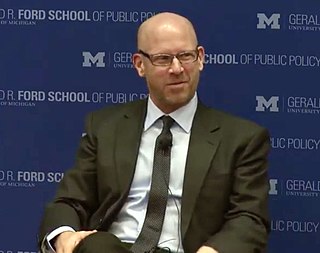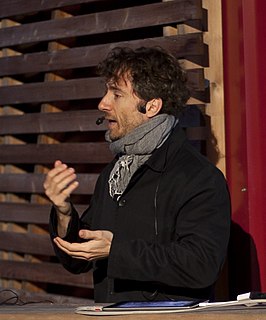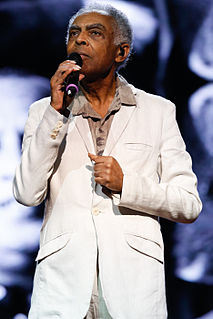Top 1200 Cultural Quotes & Sayings - Page 2
Explore popular Cultural quotes.
Last updated on December 22, 2024.
I'm always trying to ask myself both "Who am I as an individual?" and "What are the cultural forces that have made me the person that I am?" How can I understand myself as a cultural creature as well as an individual? I'm really obsessed with that question, and always asking my students to consider it.
The ideological and cultural revolutions have been promoted successfully in the countryside with the result that the ideological and spiritual qualities of our agricultural working people have been transformed remarkably, and a great development has also been achieved in the realm of cultural life in the countryside.
The Japanese director Tadashi Suzuki once stated, 'International cultural exchange is impossible - therefore we must try.' I agree with all my heart. The impossibility of seeing beyond one's own cultural context is a political act in the world and has the potential to break down the rigid assumptions surrounding us.
The largest cultural menace in America is the conformity of the intellectual cliques which, in education as well as the arts, are out to impose upon the nation their modish fads and fallacies, and have nearly succeeded in doing so. In this cultural issue, we are, without reservations, on the side of excellence (rather than "newness") and of honest intellectual combat (rather than conformity).
Good design is not about form following function. It is function with cultural content. By adding "cultural content" to the concept of "form follows function," objects cease to be finite or predictable. Maybe the right way to interpret the dictum is to first acknowledge that the function needs to be clearly understood before the form is considered.
I spent two years figuring out how I could turn it into something that would satisfy me as a musician but also make some kind of cross-cultural link. I feel that I kind of at least touched on the possibilities of cross-cultural music, but it is a lifetime's work, and I don't profess to be anything other than a novice at it.
When new businesses open that are trying to attract people with cultural capital or cultural ambitions, they are often more expensive than traditional neighborhood stores and cafés, they offer different products, and they have a different atmosphere. Longtime residents may feel uncomfortable there. Structurally, as a group of gentrifiers gets bigger, there is less room for longtime residents. When it becomes a pattern and you can see the effects, we call that displacement.
The identity of just one thing, the "clash of civilization" view that you're a Muslim or a Hindu or a Buddhist or a Christian, I think that's such a limited way of seeing humanity, and schools have the opportunity to bring out the fact that we have hundreds of identities. We have our national identity. We have our cultural identity, linguistic identity, religious identity. Yes, cultural identity, professional identity, all kinds of ways.
Even if 80 percent of the population of a country are Christian believers, they will have almost no cultural influence if the Christians do not live in cultural centers and work in culture-forging fields such as academia, publishing, media, entertainment, and the arts. The assumption that society will improve simply be more Christian believers being present is no longer valid.
We are in the process of creating what deserves to be called the idiot culture. Not an idiot sub-culture, which every society has bubbling beneath the surface and which can provide harmless fun; but the culture itself. For the first time, the weird and the stupid and the coarse are becoming our cultural norm, even our cultural ideal.
It's impossible to say that live art enjoys any single status in the information age--there are versions of live art that are still primarily art-world phenomena, others that appeal to much broader audiences. The Burning Man festival is a case in point--an event featuring performance that is itself a performance, which partakes simultaneously of frontier mythology, a counter-cultural impulse, and popular cultural visibility.
I think that we're making a mistake if we don't see that there is a cultural basis to many illnesses, not just psychiatric ones. Breast cancer would be one prevalent example right now, different kind of cultures surrounding it. If you don't understand the cultural meaning of an illness like that you're going to miss the boat even if you're a great scientist.
The term Hispanic, coined by technomarketing experts and by the designers of political campaigns, homogenizes our cultural diversity (Chicanos, Cubans, and Puerto Ricans become indistinguishable), avoids our indigenous cultural heritage and links us directly with Spain. Worse yet, it possesses connotations of upward mobility and political obedience.
The widespread inability to understand technological artifacts as fabricated entities, as social and cultural phenomena, derives from the fact that in retrospect only those technologies that prove functional for a culture and can be integrated into everyday life are 'left over.' However, the perception of what is functional, successful and useful is itself the product of social and cultural--and last but not least--political and economic processes. Selection processes and abandoned products and product forms are usually not discussed.
The blues are important primarily because they contain the cultural expression and the cultural response to blacks in America and to the situation that they find themselves in. And contained in the blues is a philosophical system at work. And as part of the oral tradition, this is a way of passing along information.
Most historians accept that Egypt was a cradle of civilization, and that many cultural idioms and traditions come from there. What has yet to be understood, however, is the manner in which Egypt inherited its cultural elements from the lands of the North-West. This fact is not known today because of the threat it poses to Rome and London, the Vatican and Crown, and to all those who have profited from the suppression of knowledge.
I think that in the diaspora, and among immigrants, religion becomes a vehicle for the transmission of cultural information, and cultural codes, and this does end up re-inscribing certain things about the religion - like caste. Caste discrimination and hierarchy are still a very fundamental and violent part of Hinduism. My family was upper caste, and that was very clear. I feel like caste and religious practice are inextricable, actually.
I think the driving force for cultural evolution is this desire for groups to be splitting off and separating and forming subgroups insofar as the environment will allow it. We see great cultural diversity and large numbers of cultures per unit area in regions of the world in which the environment is really rich.
UNESCO provides protection for the great cultural institutions. There is something called the intangible cultural heritage list. And the Italians want to put Neapolitan pizza on it. But in order to do that, you have to show that whatever it is that you're trying to protect is under threat. And pizza is totally under threat from Pizza Hut and Domino's...
Citizenship has not delivered Indigenous Australians the same quality of life other Australians expect. Basic human rights involve health, housing, education, employment, economic opportunity, and equality before the law, and respect for cultural identity and cultural diversity. These human rights must be capable of being enjoyed otherwise they are empty gestures.
Maybe we, the cultural workers , could apply ourselves. We're not going to resolve it in this moment or even in this generation, but perhaps as some kind of agenda we could invite our writers and cultural workers to address the problem a little more responsibly, because people are suffering tremendously from a want of data.
Sadly, at a time when so much sophisticated cultural criticism by hip intellectuals from diverse locations extols a vision of cultural hybridity, border crossing, subjectivity constructed out of plurality, the vast majority of folks in this society still believe in a notion of identity that is rooted in a sense of essential traits and characteristics that are fixed and static.
I want people to leave the theater with a greater understanding of the rich cultural heritage of Pakistan. "Song of Lahore" moves beyond headlines and stereotypes and shows that a vast majority of Pakistanis are not perpetrators of religious violence - they are victims of it. The beautiful cultural heritage of the region belies its image in the West as monolithically religious, intolerant, and violent.
Museums just seem to have this borrowed cachet—if I want to seem cultural, I will design something cultural. I resist the idea that culture is only opera houses or theatres. Culture is your entire life around you: toilets, the bus, the kerb or the dump where you drag your waste. Culture has come to mean the arts, but it’s swimming pools as well.
On a certain level, the film retains a cultural memory. It may be meaningless to some kids, but it doesn't matter. A lot of the '90s references will be meaningless, but do some of these kids really understand what they're wearing when they wear a Led Zeppelin shirt? No. But, it looks cool and it seems to have some sort of cultural cache.
Countries will cooperate with each other, and are more likely to cooperate with each other when they share a common culture, as is most dramatically illustrated in the European Union. But other groupings of countries are emerging in East Asia and in South America. Basically, as I said, these politics will be oriented around, in large part, cultural similarities and cultural antagonism.
Consumerism is, quite precisely, the consuming of life by the things consumed. It is living in a manner that is measured by having rather than being... and consumerism is hardly the sin of the rich. The poor, driven by discontent and envy, may be as consumed by what they do not have as the rich are consumed by what they do have. The question is not, certainly not most importantly, a question about economics. It is first and foremost a cultural and moral problem requiring a cultural and moral remedy.
In the last couple of years before Chairman Mao's death he said that the "Cultural Revolution" had been wrong on two counts: one was "overthrowing all", and the other was waging a "full-scale civil war". These two counts alone show that the "Cultural Revolution" cannot be called correct. Chairman Mao's mistake was a political mistake, and not a small one.
Sponsors, corporate endowments, and the heritage of the big fortunes would take care of financing cultural projects when American society was homogeneous. Now it's too complex, it's a mix. Different cultures in collision. I think it starts to be necessary to have a government institution to deal with cultural affairs.
Where neoliberalism thrives is in having done something that we haven't seen before. There is a merging of culture, politics, and power under neoliberalism that's unprecedented. They control the cultural apparatuses. And what I mean by "cultural apparatuses" is all those institutions that are about the production of knowledge, values, dispositions, and subjectivities. They control them.
Since the notion that we should all forsake attachment to race and/or cultural identity and be “just humans” within the framework of white supremacy has usually meant that subordinate groups must surrender their identities, beliefs, values, and assimilate by adopting the values and beliefs of privileged-class whites, rather than promoting racial harmony this thinking has created a fierce cultural protectionism.
I would love to be nominated for an award at some point or do something that at least engenders the type of cultural conversation that a role like Giancarlo Esposito on 'Breaking Bad,' or actually any of the people on 'Breaking Bad.' I would love to have a role in a feature film that was a cultural talking point.
Artists are looking for a new modernity that would be based on translation: What matters today is to translate the cultural values of cultural groups and to connect them to the world network. This “reloading process” of modernism according to the twenty-first-century issues could be called altermodernism, a movement connected to the creolisation of cultures and the fight for autonomy, but also the possibility of producing singularities in a more and more standardized world.
The counterculture has nothing to do with Dolce & Gabbana having a 'Hippy Summer' or something. Street kids, and kids who want to live in any sort of counter-cultural experience other than what's being presented by the mainstream media or political climate, or 'normal' cultural climate, are never going to look like that.
The gospel is never heard in isolation. It is always heard against the background of the cultural milieu in which one lives. A person raised in a cultural milieu in which Christianity is still seen as an intellectually viable option will display an openness to the gospel which a person who is secularized will not [as such] part of the broader task of Christian scholarship is to help create and sustain a cultural milieu in which the gospel can be heard as an intellectually viable option for thinking men and women.
Because I'm sort of an honorary Canadian, I don't think the others grasped the cultural significance of who the Tragically Hip were before the tour. Talking to Sheryl Crow and her people and the guys in Wilco, everyone was ecstatic to be on the tour, it was a lot of fun. But it even took me a while to grasp the idea that this is not just a band, this is a cultural artifact, what the Hip means in Canada. There is nobody else like them.
I know of no civilization that tolerates or justifies violence, terrorism, or injustice. There is no civilization that justifies the killing of innocent people. Those who are invoking cultural relativism are really using that as an excuse for violating human rights and to put a cultural mask on the face of what they're doing.
The enormous social change involved in a sexual revolution is basically a matter of altered consciousness, the exposure and elimination of social and psychological realities underlying political and cultural structures. We are speaking, then, of a cultural revolution, which, while it must necessarily involve the political and economic reorganization traditionally implied by the term revolution, must go far beyond this as well.
In such a globally connected world, musicians now have the unique opportunity to express all of the cultural 'mash ups' we are experiencing these days. Akin to the blend of cultures that occurred in early 20th-century New Orleans that led to the birth of jazz, I believe that the world has reached a similar cultural turning point.
Margaret Mead was both a student of civilization and an exemplar of it. To a public of millions, she brought the central insight of cultural anthropology: that varying cultural patterns express an underlying human unity. She mastered her discipline, but she also transcended it. Intrepid, independent, plain spoken, fearless, she remains a model for the young and a teacher from whom all may learn.


























































